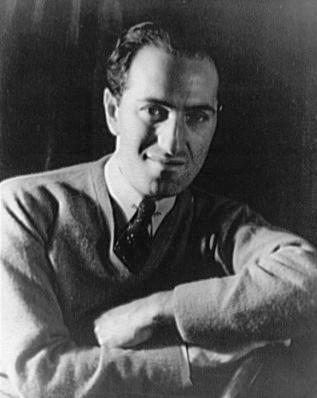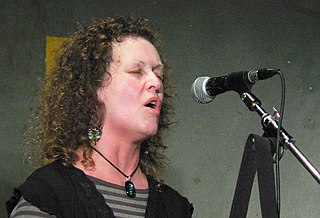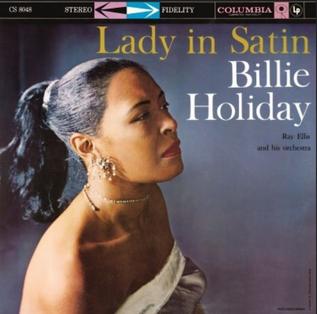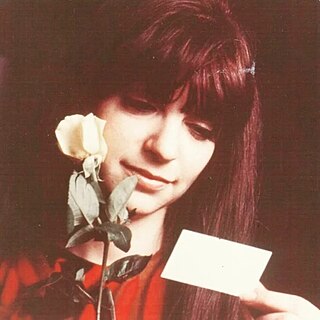
George Gershwin was an American composer and pianist whose compositions spanned popular, jazz and classical genres. Among his best-known works are the orchestral compositions Rhapsody in Blue (1924) and An American in Paris (1928), the songs "Swanee" (1919) and "Fascinating Rhythm" (1924), the jazz standards "Embraceable You" (1928) and "I Got Rhythm" (1930), and the opera Porgy and Bess (1935), which included the hit "Summertime".

Jackie DeShannon is an American singer-songwriter and radio broadcaster with a string of hit song credits from the 1960s onwards, as both singer and composer. She was one of the first female singer-songwriters of the rock and roll period. She is best known as the singer of "What the World Needs Now Is Love" and "Put a Little Love in Your Heart", and as the writer of "When You Walk in the Room" and "Bette Davis Eyes", which became hits for The Searchers and Kim Carnes, respectively.
A cast recording is a recording of a stage musical that is intended to document the songs as they were performed in the show and experienced by the audience. An original cast recording or OCR, as the name implies, features the voices of the show's original cast. A cast recording featuring the first cast to perform a musical in a particular venue is known, for example, as an "original Broadway cast recording" (OBCR) or an "original London cast recording" (OLCR).

Julie London was an American singer and actress whose career spanned more than 40 years. A torch singer noted for her contralto voice, London recorded over thirty albums of pop and jazz standards between 1955 and 1969. Her recording of "Cry Me a River", a song she introduced on her debut album Julie Is Her Name, was inducted into the Grammy Hall of Fame in 2001. In addition to her musical notice, London was nominated for a Golden Globe Award in 1974 for her portrayal of Nurse Dixie McCall in the television series Emergency!
"I Got Rhythm" is a piece composed by George Gershwin with lyrics by Ira Gershwin and published in 1930, which became a jazz standard. Its chord progression, known as the "rhythm changes", is the foundation for many other popular jazz tunes such as Charlie Parker's and Dizzy Gillespie's bebop standard "Anthropology ".

Classics selected by Brian Wilson is a compilation of songs by The Beach Boys and released through Capitol Records in mid-2002. It was compiled by Brian Wilson himself that February. It includes a new recording of an unreleased 1970s track, "California Feelin'" not by The Beach Boys but Wilson and his live band.

Julie Driscoll Tippett is an English singer and actress, known for her work with Brian Auger and her husband, Keith Tippett.

Michael Jay Feinstein is an American singer, pianist, and music revivalist. He is an archivist and interpreter for the repertoire known as the Great American Songbook. In 1988, he won a Drama Desk Special Award for celebrating American musical theatre songs. Feinstein is also a multi-platinum-selling, five-time Grammy-nominated recording artist. He is the artistic director for The Center for the Performing Arts in Carmel, Indiana.

Lady in Satin is an album by the jazz singer Billie Holiday released in 1958 on Columbia Records, catalogue CL 1157 in mono and CS 8048 in stereo. It is the penultimate album completed by the singer, and the last to be released in her lifetime. Her final album, Last Recording, was recorded in March 1959,and released just after her death. The original album was produced by Irving Townsend and engineered by Fred Plaut.

Songs for Young Lovers is the seventh studio album by Frank Sinatra and his first on Capitol Records. It was issued as an 8-song, 10" album and as a 45rpm EP set, but it was the first Sinatra "album" not to have a 78rpm multi-disc-album release. In 2002, it was one of 50 recordings chosen that year by the Library of Congress to be added to the National Recording Registry.

Ella in Rome: The Birthday Concert is a live album by Ella Fitzgerald, with a jazz trio led by Lou Levy, and also featuring the Oscar Peterson trio. Recorded in 1958, it was released thirty years later.

Margo Guryan was an American singer-songwriter. As a songwriter, her work was first recorded in 1958, although it was for her 1960s song "Sunday Mornin'", a hit for both Spanky and Our Gang and Oliver, that she is perhaps best known. Her songs have also been recorded by Cass Elliot, Glen Campbell and Astrud Gilberto, among others.
"I've Got a Crush on You" is a song composed by George Gershwin, with lyrics by Ira Gershwin. It is unique among Gershwin compositions in that it was used for two different Broadway productions: Treasure Girl (1928), when it was introduced by Clifton Webb and Mary Hay, and Strike Up the Band (1930), when it was sung by Doris Carson and Gordon Smith. It was later included in the tribute musical Nice Work If You Can Get It (2012), in which it was sung by Jennifer Laura Thompson. When covered by Frank Sinatra he was a part of Columbia Records.

Around Midnight is an LP album by Julie London, released by Liberty Records under catalog number LRP-3164 as a monophonic recording in 1960, and later in stereo under catalog number LST-7164 the same year. It was released a number of times on CD from 1998.

By Myself is an LP album by Julie London, released by Liberty Records for Columbia House Record Club under catalog number MCR-1 as a monophonic recording and catalog number SCR-1 in stereo in 1965.

All Through the Night: Julie London Sings the Choicest of Cole Porter is an LP album by Julie London, released by Liberty Records under catalog number LRP-3434 as a monophonic recording and catalog number LST-7434 in stereo in 1965. She was accompanied by the Bud Shank Quintet.

Easy Does It is a 1968 album by singer Julie London.

When Harry Met Sally... is the soundtrack to the movie When Harry Met Sally... starring Billy Crystal and Meg Ryan. The songs are performed by pianist Harry Connick Jr., who won the Grammy Award for Best Jazz Male Vocal Performance.

"Stoned Soul Picnic" is a 1968 song by Laura Nyro. The best-known version of the song was recorded by the 5th Dimension, and was the first single released from their album of the same title. It was the most successful single from that album, reaching No. 3 on the U.S. Pop chart and No. 2 on the Billboard R&B chart. It became a platinum record.

The discography of American jazz singer Julie London consists of 29 studio albums, one live album, six compilation albums, two additional albums, and 29 singles. After a moderately successful film career, London signed a recording contract with the newly formed Liberty Records in 1955. Her debut single "Cry Me a River" reached number nine on the Billboard Hot 100 in 1955. In June 1957, it would also peak at number twenty-two on the UK Singles Chart. "Cry Me a River" became London's most successful and highest-selling single of her musical career. The single would sell three million copies in total. Her debut studio album Julie Is Her Name was issued in December 1955 and reached the second position on the Billboard 200 albums chart. London's next three studio releases, Lonely Girl (1956), Calendar Girl (1956), and About the Blues (1957), reached the top-twenty of the Billboard 200 survey as well.

















